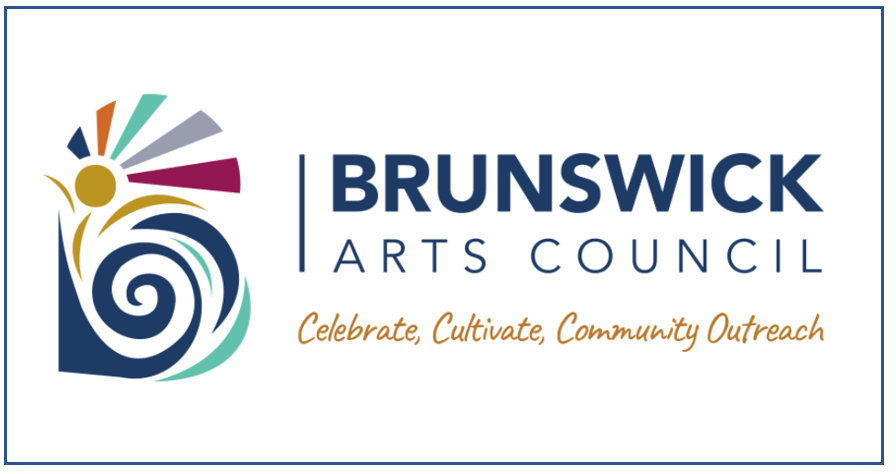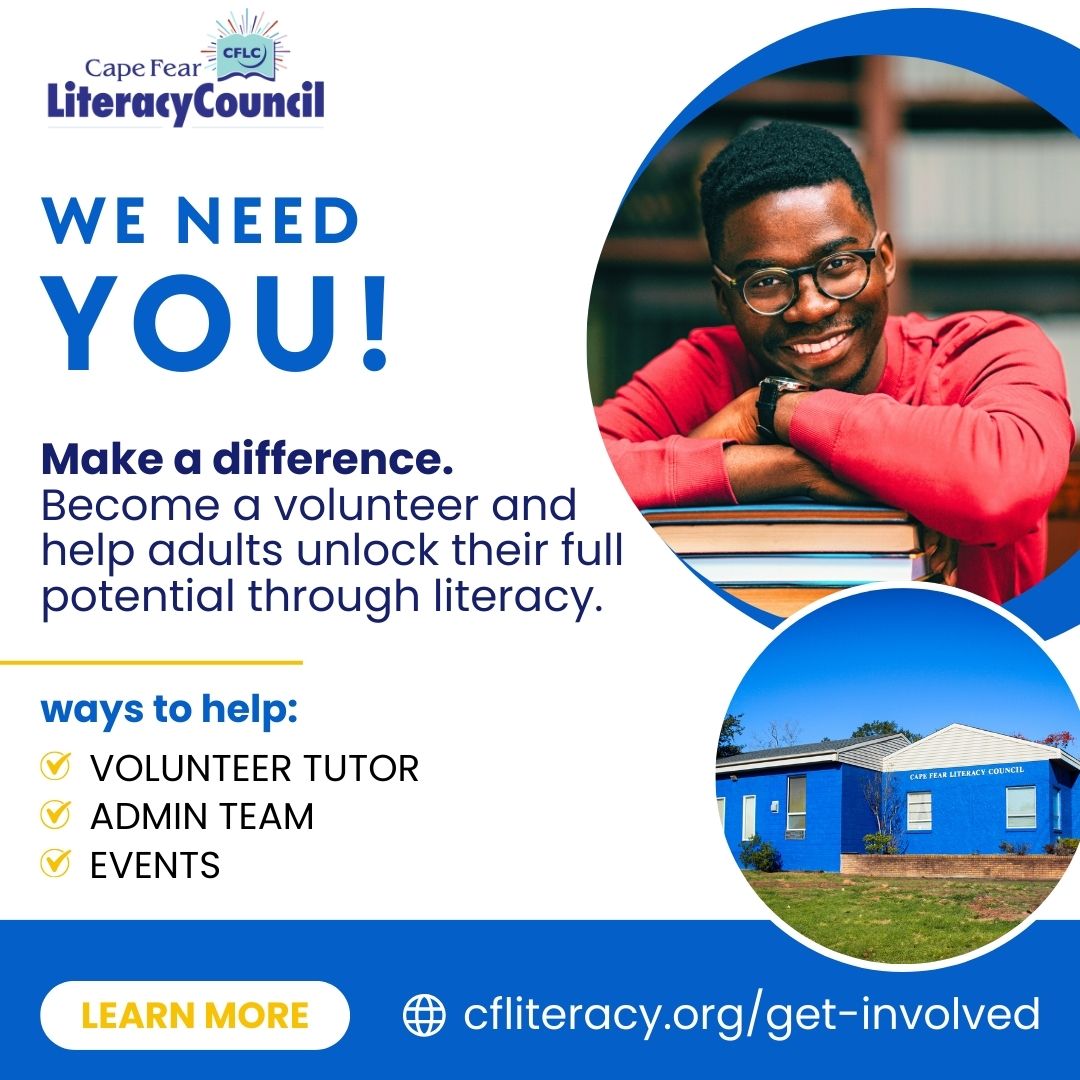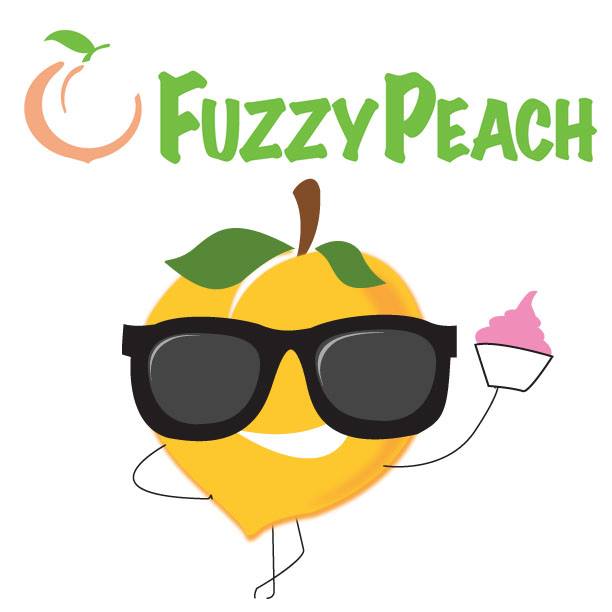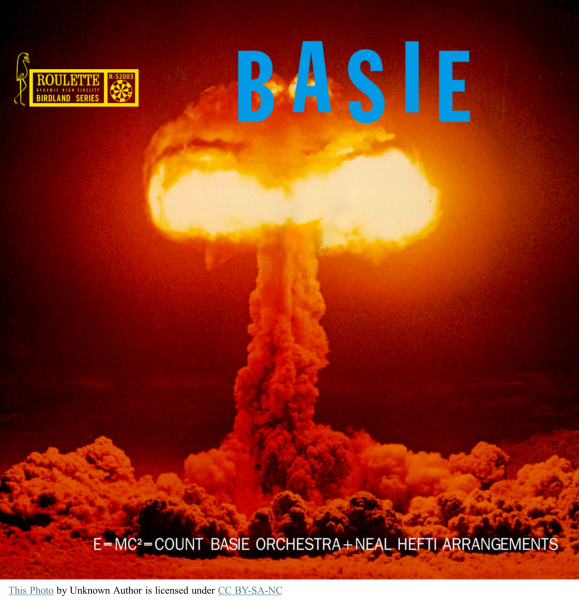Skill Builders at the Cape Fear Literacy Council
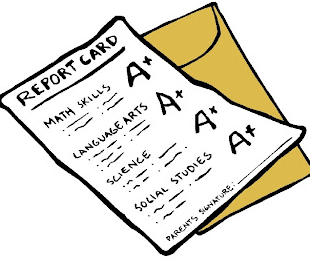
September 2, 2022
Taking the First Step: Skill Builders at the Cape Fear Literacy Council
By Nicole Wolf-Camplin, Cape Fear Literacy Council
Imagine for a minute that you cannot read. Street signs, employee placards, and the labels on prescription bottles contain mysterious symbols that could prove dangerous. Your children’s or grandchildren’s educational goals are beyond your reach. You are outside of society’s mainstream to success.
The Cape Fear Literacy Council (CFLC) serves adults over eighteen, from beginning readers who may not know their alphabet, to high school graduates who need additional skills to approach college-level work, perhaps in reading, math, and computer skills. Students pursuing their G.E.D. are often in the spotlight for their hard-won success, but beginners also deserve recognition for their efforts.
CFLC usually places these adult learners in a one-on-one tutoring situation where they can progress according to their needs and preserve their privacy. However, some students respond well to small classes where they can meet other learners in the same situation and support and encourage each other’s educational efforts. Three such gentlemen in their 50s recently decided to take a chance on each other and meet weekly on Wednesday mornings on our campus with a trained volunteer tutor.
Joseph had hung onto reading materials he had received in previous classes and, leafing through them, decided it was time to start again. He has a great ear and eye for detail but feels nervous about starting new skills after many disappointments. Gabriel, a former Walmart stocker and retired house painter, is a highly creative thinker who can tell stories but struggles to write them. As he tells it, “I have so many goals: to learn to read, to use my laptop, to walk into a restaurant and be able to read the menu, to sit somewhere with a book to enjoy.” Bob, a stalwart volunteer in his community, is waiting for a 1:1 tutor but decided the class sounded like a good idea to “just get started.” All three men agree that they want to be able to complete their own medical paperwork when they go to the doctor’s office. “I hate telling the lady at the counter that I can’t read. They always say that it’s OK, but it’s embarrassing.”
The men all arrive early and have time to chat before class. Gabriel appreciates that, “We all get along and talk grown talk. We can be patient with each other.” Bob chimes in, “Everyone is friendly; I got one grouchy friend already; we ain’t grouchy with each other.” Gabriel is mad at himself because when he went to school, “I didn’t listen to what they had to say.” Now, all three are making up for the lost time.
The men are careful to protect their Wednesday morning class time from other appointments. During class, they use pictures, skill books, simplified newspapers, and manipulative cards to build phonological awareness (the discernment of sounds and their corresponding phonics), to read and compose first words, then sentences and paragraphs. All are making progress. As Gabriel puts it, “Sometimes if I’m looking for a word, I can go right to it. I can make out more things. I’m not there yet, but I am inching towards it.”
Learning to read can be an overwhelming goal for an adult; taking the first step requires extraordinary courage and dedication. Functionally illiterate students, who lack the basic reading and writing skills to complete everyday activities, may struggle with basic directions, forms, bills, recipes, maps, as well as job-related tasks that the rest of us take for granted. Students might present this level of literacy despite finishing high school if they were “passed along.” They may work full-time jobs and volunteer in their communities. Many attend church and list it as a motivating influence to address their educational needs. Others are eager to encourage their children’s education and break the cycle of illiteracy at home. Many are successfully hiding their inability to read, but they often feel a private sense of shame. Our students’ success deserves to be celebrated. We would like to recognize all our beginners and the dedicated tutors who work with them to take the first steps on the road to literacy.
Nicole Wolf-Camplin is the Adult Literacy Program Coordinator at the Cape Fear Literacy Council. Learn more about our adult education programs and opportunities to get involved at the Literacy Council on our website at www.cfliteracy.org or call us at (910) 251-0911.

